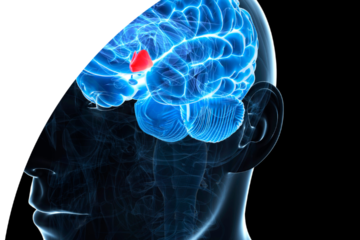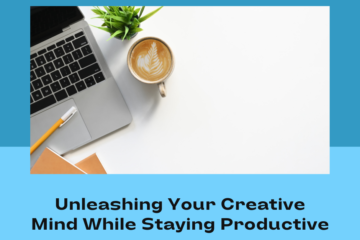
Introduction:
It’s important to understand the mind-body connection and how it affects every part of our lives in today’s fast-paced world. This piece will look at the deep connection between our mental and physical health and how they both shape who we are as people. By looking into the complex link between physical health, exercise, nutrition, and mental health, we hope to give people useful information that will help them live whole, happy lives.
Understanding the Mind-Body Connection:
Thoughts, feelings, and physical sensations work together in a complicated way: The mind-body link is the complex relationship between how we think, feel, and feel in our bodies. These things work together in a complicated way that has a big effect on our well-being as a whole. To be healthy in every way, you need to understand this link.
Intricate Connection Between Mind and Body:
The mind and body of a person are closely linked, and each affects the other in deep ways. Our mental health can have an effect on our physical health, and our physical health can have a big effect on how we feel and think.
Impact of Thoughts and Emotions on Physical Health:
Our thoughts and feelings have a direct effect on our physical health. Researchers have found that having positive thoughts and being emotionally strong are good for our immune system. They can make your immune system stronger, making you less likely to get sick.
Positive Thinking and Emotional Resilience:
Studies in the area of psychoneuroimmunology have shown the power of positive thinking and emotional resilience. People who are optimistic and know how to deal with stress well tend to have better heart health and live longer.
Weakening of the Immune System due to Chronic Stress:
On the other hand, long-term stress and negative feelings can hurt our immune system. When we’re exposed to stress hormones for a long time, they can weaken our body’s defenses and make us more likely to get sick or have other health problems.
The Influence of Physical Health on Personality Development
Personality growth is a dynamic process that is affected by many things, but physical health is one of the most important ones. During childhood and youth, when personality traits are still taking shape, a person’s physical health has a big impact on how they act and what they become. A child who has good physical health as they grow up is more likely to be confident, open, and good with people. A child who has health problems may learn to be strong, determined, and caring.
Self-esteem and self-image are also affected by physical health. People who feel good about how they look are more likely to have a good personality and be more confident in themselves. On the other hand, people with long-term health problems or disabilities may feel like they aren’t good enough, which can affect their general personality development.
The Role of Exercise in Shaping Personality
Exercise isn’t just good for our bodies; it also has a big effect on our mental health and who we are as people. Endorphins are the “feel-good” hormones that are released when you exercise regularly. They make you feel happier and less stressed. Exercise has also been linked to better brain power, memory, and imagination.
Sports and other physical activities can teach important skills like focus, working as a team, and sticking with something even when it’s hard. Team sports, in particular, teach people how to work together, talk to each other well, and handle both wins and losses with ease. These traits aren’t just good for sports; they also help people become more well-rounded and confident.
Nourishing the Mind: Nutrition’s Impact on Mental Health
The saying “you are what you eat” is true for our mental health as well as our physical health. Our mental health and emotional balance are directly and strongly affected by the food we eat. It is important to realize that good diet is a key part of how well the brain works and how neurotransmitters, which are chemical messengers that allow brain cells to talk to each other, work.
Some nutrients have been shown to improve cognitive performance and mental clarity more than others. Omega-3 fatty acids are usually found in fatty fish like salmon and trout. They are good for the brain and have been linked to better memory and focus. Antioxidants are found in many colorful fruits and veggies. They help protect the brain from oxidative stress, which can lead to memory loss and cognitive decline if it happens too often.
B vitamins, especially B6, B9 (folic acid), and B12, are important for brain health and making chemicals like serotonin and dopamine. These hormones are very important for controlling mood and feelings. Getting enough B vitamins has been linked to better mental health and a lower chance of getting depressed.
On the other hand, our mental health can be affected by the way we eat. People who eat a lot of prepared foods that are high in sugar and trans fats have been shown to have mood swings, be more irritable, and feel more anxious. When you eat these kinds of foods often, it can make you feel bad, which can make you keep eating unhealthy foods and hurt your general health.
On the other hand, eating a lot of foods that are high in nutrients can have a big effect on our mental health. A diet with a range of fruits, vegetables, whole grains, and lean proteins gives you the vitamins, minerals, and antioxidants you need to think clearly and feel good about yourself.
Fruits and veggies are full of antioxidants and also give the brain the vitamins and minerals it needs to stay healthy. Vitamin C, for example, helps make hormones, and vitamin K helps your brain work and your memory.
Whole grains are a good source of complex carbohydrates, which give the brain a steady supply of energy and help you stay focused and clear-headed all day. Whole grains also have B vitamins, fiber, and other important nutrients that are good for the brain as a whole.
Lean proteins, like those found in chicken, fish, and vegetables, give you amino acids, which are the building blocks of neurotransmitters. Getting enough protein helps the brain make neurotransmitters that control mood and feelings.
Cultivating a Holistic Wellness Routine
To use the mind-body link to its fullest, it’s important to develop a wellness routine that includes physical, mental, and emotional health. Here are some important parts of a well-rounded routine:
1. Regular Exercise:
Walk, ride a bike, dance, or do yoga every day. Try to exercise for at least 30 minutes most days of the week.
2. Mindfulness Practices:
Practices like meditation and deep breathing can help you be more mindful, lower stress, and become more self-aware.
3. Balanced Nutrition:
Adopt a healthy food that gives your body and mind what they need. Eat a range of fresh fruits, vegetables, whole grains, and lean proteins.
4. Quality Sleep:
Make sleep a priority and try to get 7-9 hours of good sleep every night to help your brain and emotions.
5. Social Connections:
Build relationships and social ties that are important and give you emotional support and a sense of belonging.
6. Creative Expression:
Do creative things like drawing, writing, or playing an instrument to help you express yourself and let go of your feelings.
7. Time in Nature:
Spend time in nature to re-energize and get back in touch with the natural world. This can calm and refresh your mind.
Conclusion:
The mind-body connection is a powerful thing that has a big effect on how we grow as people and on our overall health. If we understand and take care of this complex relationship, we can live full, happy lives with a sense of meaning. Prioritizing physical health, exercise, nutrition, and mindfulness practices can help us unlock the full potential of our mind-body link and create a harmonious balance between our physical and mental worlds.
FAQs
Q1: Does physical health really affect how a person grows?
Absolutely! Personality traits and behaviors are affected by physical health in a big way, especially during childhood and puberty, when personality development is most clear. Good physical health can help people feel more confident, friendly, and emotionally strong.
Q2. How does exercise affect our mental health in the second question?
Exercise has a big effect on mental health because it makes endorphins, chemicals that make you feel good and lower stress. It also helps with thinking, remembering, and being creative, and sports and other physical activities teach important life skills like working as a team and not giving up.
Q3. How does what you eat affect your mental health?
The way you eat has a big impact on your mental health. Nutrients like omega-3 fatty acids, antioxidants, and B vitamins help your brain work well and keep your emotions stable. On the other hand, mood swings, anxiety, and sadness can be caused by bad eating habits. Choosing a balanced, healthy diet is important for your general health.



0 Comments